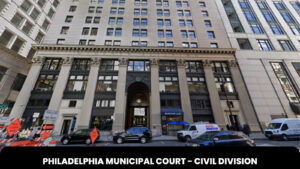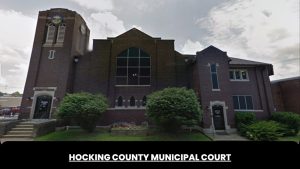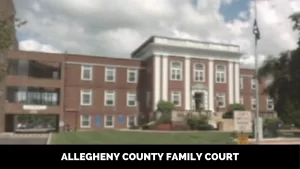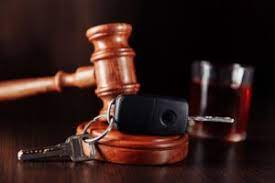District Court For The District Of Massachusetts
The U.S. District Court for the District of Massachusetts is a federal trial court that oversees cases arising under federal law throughout the state of Massachusetts. The court has a rich history dating back to the 18th century and plays an important role in the federal judiciary system. With courthouses located in Boston, Worcester, and Springfield, the District of Massachusetts serves millions of people across 14 counties in the state.
History and Overview
Establishment and Jurisdiction
The District of Massachusetts was one of the original 13 district courts established by the Judiciary Act of 1789. It holds jurisdiction over federal cases arising in Massachusetts, including disputes over the U.S. Constitution, federal statutes, maritime law, bankruptcy, and more. The court has the authority to interpret the law through its rulings.
Courthouses and Facilities
The John Joseph Moakley U.S. Courthouse in Boston opened in 1998 and is the largest and primary courthouse in the district. This iconic waterfront building has 24 courtrooms and 32 chambers. Other divisions are located in Worcester and Springfield. The Springfield courthouse also serves the U.S. Bankruptcy Court.
Judges and Staff
The District of Massachusetts has 25 federal judges including 20 district court judges, 4 magistrate judges, and a bankruptcy judge. Over 300 deputy clerks and staff help administer justice and keep the courts operating efficiently. The U.S. Marshal oversees security for the district.
Federal Cases and Controversies
Notable Cases Heard
From historic trials to recent headline cases, the District Court of Massachusetts has shaped the law. It heard the Boston Massacre trials, anarchist Emma Goldman’s free speech case, and patent disputes between tech giants. The court also oversaw Boston Marathon bomber Dzhokhar Tsarnaev’s death penalty trial.
Types of Cases
This court handles an extensive civil and criminal docket covering issues like civil rights, fraud, organized crime, terrorism, labor laws, medical malpractice, products liability, immigration, and more. Class action lawsuits are frequently litigated here.
Famous Trials
Some legendary trials occurred in this district including alleged mob boss James “Whitey” Bulger, figure skater Tonya Harding, and Boston mob leader James “Buddy” McLean. It hosted the notable Sacco & Vanzetti and Boston Strangler trials.
The Court’s Impact and Significance
Influential Rulings
From school desegregation to abortion rights, rulings from this court have shaped Constitutional law. It helped end segregation in schools in the mid-1900s. Important free speech and due process decisions also originated here.
Changes Over Time
The District of Massachusetts has evolved since its early days. It used to hold circuit court powers but now focuses on district court duties. Dockets and caseloads grew exponentially from when the court was founded. The number of judgeships also increased.
Role in the Judicial System
This court plays a vital role by bringing justice, protecting rights, and upholding the Constitution through fair trials. It acts as a check on the executive and legislative branches. The District of Massachusetts sets influential precedents used in courts across America.
Daily Operations and Procedures
Filing Cases and Documents
Civil and criminal cases are initiated by filing complaints or indictments with the court clerk’s office. Motions and responses are also submitted to the clerk electronically or in-person during business hours. The public can observe proceedings and access records.
Courtroom Proceedings
The district court handles pretrial conferences, hearings, bench and jury trials, sentencing, and other aspects of litigation. Interpreters assist non-English speakers. Court reporters create official transcripts. The process aims to be public, fair, and impartial.
Sentencing and Judgment
Federal judges determine penalties and damages based on federal sentencing guidelines and legal precedent. Options include fines, restitution, community service, probation, and imprisonment. The court enters a final judgment resolving the case after sentencing.
Serving the Massachusetts District
Demographics and Population
This district serves around 7 million diverse residents from bustling urban hubs like Boston to remote areas like Nantucket. There is a mix of densities and demographics across the region. The population increased almost 10% from 2010 to 2020.
Counties in the Jurisdiction
The District of Massachusetts holds jurisdiction over federal cases arising in all 14 Massachusetts counties: Barnstable, Berkshire, Bristol, Dukes, Essex, Franklin, Hampden, Hampshire, Middlesex, Nantucket, Norfolk, Plymouth, Suffolk, and Worcester counties.
Accessibility and Convenience
With courthouses spread across three main metro areas, the district court aims to be accessible. Court locations offer public transit access. Proceedings can be observed in-person or remotely. Online case records make information available anywhere.
Looking to the Future
Potential Changes and Developments
As population and caseloads expand in Massachusetts, the District Court may need to adapt. In the future, it could see more judgeships added, new courthouse facilities, and evolving technologies like remote appearances. Security and accessibility remain priorities.
Continuing the Legacy
As one of the original federal district courts, this institution has a long legacy. For over 200 years it has shaped the nation’s laws. The court will likely continue trailblazing Constitutional decisions and administering impartial justice for generations to come.
Conclusion
For over two centuries, the U.S. District Court for the District of Massachusetts has influenced American law and democracy through its fair application of justice. With roots dating back to the founding era, it has evolved along with the nation it serves. Today, this court oversees crucial federal cases that help protect rights, balance powers, resolve disputes, and define the Constitution’s intent. The District of Massachusetts upholds lofty legal principles while remaining grounded in the communities under its jurisdiction. With its legacy intact but eye toward the future, the court remains committed to its duty of administering justice.
FAQs
What types of cases are heard by the District Court of Massachusetts?
This court hears both civil and criminal cases involving federal law, including disputes over Constitutional rights, federal statutes, intellectual property, maritime law, bankruptcy, and many other types of cases under federal jurisdiction.
How many courthouse locations does this district have?
The District of Massachusetts has three main courthouses located in Boston, Worcester, and Springfield to serve parties across the state. The Boston courthouse is the largest facility.
Who works for the District Court of Massachusetts?
The court has 25 federal judges including district court judges, magistrate judges, and bankruptcy judges. Over 300 staff including clerks, deputies, court reporters, and marshals assist in its operation.
What are some notable trials heard by this court over the years?
Historically significant trials include the Boston Massacre trials, anarchist Emma Goldman’s case, Sacco & Vanzetti, the Boston Strangler, mob trials, and the Boston Marathon bombing case.
How can I view court proceedings or records for cases filed here?
The public can observe trials and hearings in person at the courthouses or in some cases remotely. Court records and documents can be viewed online through PACER or at the clerk’s office.




